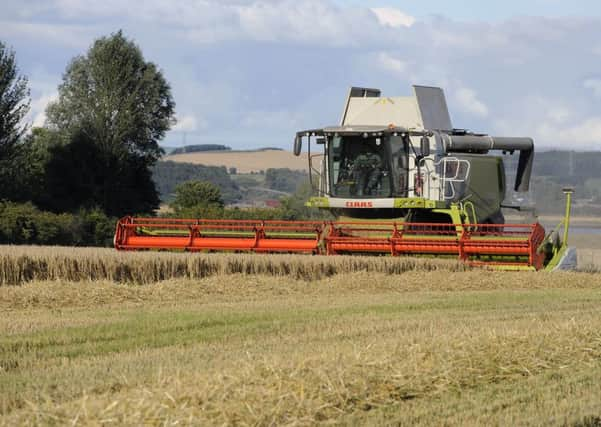Agri-tech investment in Scotland poised to pay off
This article contains affiliate links. We may earn a small commission on items purchased through this article, but that does not affect our editorial judgement.


That was the message to Scotland’s first conference devoted to technical innovation in the agri-food sector, where it was revealed that state spending on facilities and infrastructure together with pump-priming funding on projects to foster greater co-operation between the research and commercial ends of new technologies had borne fruit.
• READ MORE: Farming news
Dave Ross, chief executive of the AgriEPIcentre – EPI stands for engineering, precision and innovation – said that, while the £90 million spent on research facilities in the years following the review of the government’s agri-tech strategy in 2013 had helped to make up for several decades of neglect in the sector, the timing had helped catapult UK centres to the forefront in global terms.
Advertisement
Hide AdAdvertisement
Hide Ad“And this places us in an excellent position to deliver techncial solutions to companies, businesses and governments overseas from our agri-tech facilities in Scotland and the rest of the UK,” he said.
He added that while the industry is now worth around $1 billion (£773bn) to the UK economy, predicted raw growth in the sector was likely to see that rise to over $8bn over the next seven years – 1.5 times that likely to come from the genetics revolution.
Ian Cox of Innovate UK said that the current round of government backing for current projects – valued at £80m over five years – was coming to an end but while more funding was being sought, many of the centres had attracted sufficient commercial work to secure their future.
“Basically what the agri-tech centres do is to provide applied research for the problems which industry wants solved – and we do that by bringing different partners together,” he said, adding that Scotland had done particularly well from the funds spent on facilities, with the Roslin research centre outside Edinburgh gaining a considerable share.
• READ MORE: Centre will put barley at the hub of Scots farming
Scotland is also close to securing another major agri-tech centre with proposals for an International Barley Hub at the James Hutton Institute near Dundee awaiting confirmation of financial support.
Advertisement
Hide AdAdvertisement
Hide AdAnd although the estimated £40m funding is set to come from a different source – through the Tay Cities deal – the institute’s Professor Derek Stewart said that it would operate with a similar mix of research and industry funding after the whole supply chain had pulled together to support the bid.
“But make no mistake, such an investment will pay dividends – with estimates suggesting that it will create 3,500 jobs and £750m in additional economic value across the industry,” he said.
While he said the barley hub would attract international work and support, a “vertical farming” project which had been set up at the Hutton when a commercial company had “put its money where its mouth is” was already producing enclosed systems which were applicable anywhere on the planet.